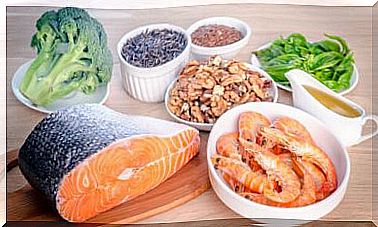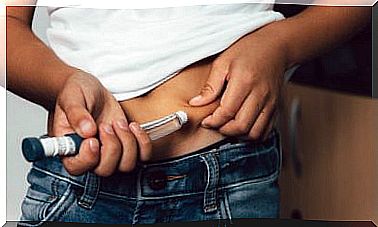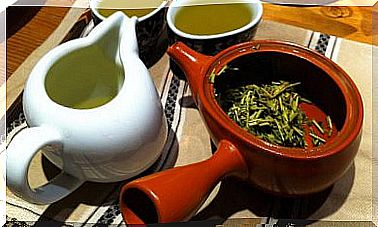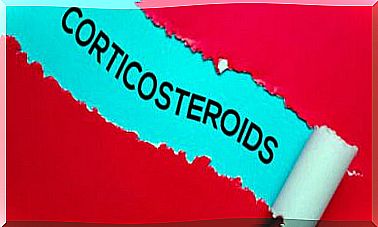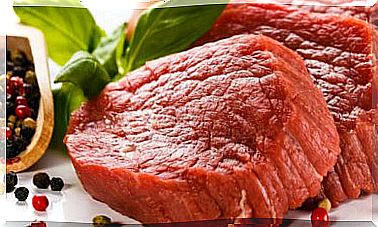What Is Hypochlorhydria?
Hypochlorhydria is the decreased production in the human body of the substance known chemically as hydrochloric acid. It is found inside the stomach in a controlled environment.
Hydrochloric acid – HCl according to its chemical symbols – fulfills a series of specific functions in the stomach. These functions are basically protection against external agents and digestion.
The stomach produces hydrochloric acid through specialized cells in the stomach. The acid-producing cells are stimulated by the substance histamine, which in turn is stimulated by the hormone gastrin. Conversely, when the acid is sufficient or excessive, the stomach itself signals the body to no longer stimulate itself with gastrin.
Under normal conditions, if the self-regulating system works, there will be no gastritis or hypochlorhydria. If the generation of hydrochloric acid falls well below the desired levels, then we do speak of hypochlorhydria, and even achlorhydria when no acid is generated.
Among the properties of hydrochloric acid in the stomach we have to:
- Denatures the proteins we eat in order to process them.
- Participates in the digestive process of carbohydrates.
- It destroys harmful microorganisms that could enter the body with food.
Although it may seem like a non-serious situation, hypochlorhydria has been associated with stomach cancer. Patients who have the disorder for a long time are more prone to this neoplasm.
Causes of hypochlorhydria
Over time, various causes of hypochlorhydria have been determined. Among them, the most important are:
- States of stress and anxiety: one of the most important causes of hypochlorhydria. Under stress, cells can stop producing hydrochloric acid.
- Aging: over the years our cells lose functions due to the deterioration of age. Among these lost functions is the correct hormonal secretion, and gastrin can be affected. Also the cells that produce hydrochloric acid age and slow down their metabolism. It is estimated that among those over sixty years there is a thirty percent prevalence of hypochlorhydria.
- Abusive use of antacids: people who suffer from recurrent gastritis run the risk of overusing drugs such as ranitidine or omeprazole. These drugs block acid production to relieve gastritis symptoms. However, although it is the desired effect, in excessive use they can lead to hypochlorhydria.
- Disorders of the pituitary: when this organ works incorrectly, the hormonal communication pathway between gastrin and histamine can be altered.
- Hypothyroidism: As a disease that affects many bodily functions, the low presence of thyroid hormones also affects the gastrin and histamine hormonal axis.
- Gastric surgeries: some procedures on the stomach that are invasive have the adverse effect of altering the production of hydrochloric acid. Especially surgeries where part of the organ is resected, subsequently lead to hypochlorhydria.

Symptoms of a lack of gastric acid
It is not so easy to determine that there is low production of hydrochloric acid. Hypochlorhydria has symptoms that are similar to other pathologies and confuses its presentation with other conditions.
When suspected, doctors have some diagnostic procedures to rule out other diseases. Anyway, it is known that in hypochlorhydria it is common to suffer:
- Alterations in the digestion of meats: after eating some meat, the body does not process it properly or with the speed it should.
- Gas and bloating: slower digestion due to hydrochloric acid deficiency produces more intestinal gas.
- Anemias: in hypochlorhydria, fewer nutrients are absorbed, including iron and vitamin B12, which can lead to chronic anemia, difficult to control.
- Gastroenteritis: as the protection against external microorganisms fails, infectious gastroenteritis appears repeatedly.
- High cholesterol: by lacking hydrochloric acid to aid digestion, the process of fat absorption is altered, with the consequent possibility that they shoot up in the blood.

Treatments for hypochlorhydria
If the doctor detects an underlying pathology that causes hypochlorhydria, such as hypothyroidism, he will focus his treatment on this disease. Once the underlying disorder is solved, the symptoms should disappear.
On the contrary, if hypochlorhydria does not have a clear cause, general measures will be taken. These guidelines help the human body regain proper hydrochloric acid production. These measurements are:
- Chew slowly: chewing indicates to the body that digestion will begin, which is why the mechanisms according to it are activated. While chewing, the gastrin hormone, among others, is put into operation.
- Hot infusions: the use of hot drinks after lunch or dinner stimulates the production of hydrochloric acid. It is a natural mechanism that can be exploited. The opposite happens with cold water, which is not indicated in hypochlorhydria because it inhibits the generation of gastric acid.
- Natural substances: apple cider vinegar, honey and sea salt are products that are associated with the stimulation of hydrochloric acid. They are only adjuvants within the framework of other measures that should be taken in the case of hypochlorhydria.
Definitely
Low hydrochloric acid production can be the trigger for various digestive complaints. It is even associated with anemia and high cholesterol levels. Therefore, it is convenient to receive a timely diagnosis and, thus, determine the appropriate treatment according to the cause.
